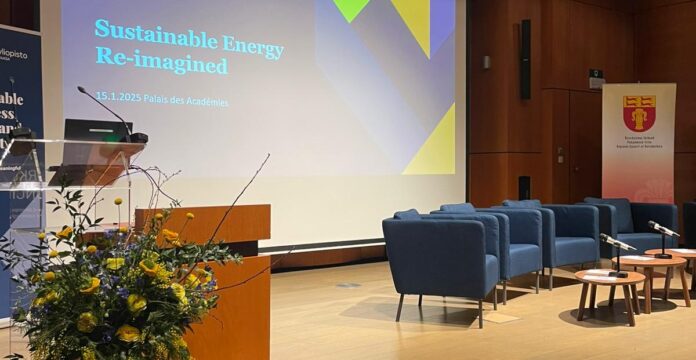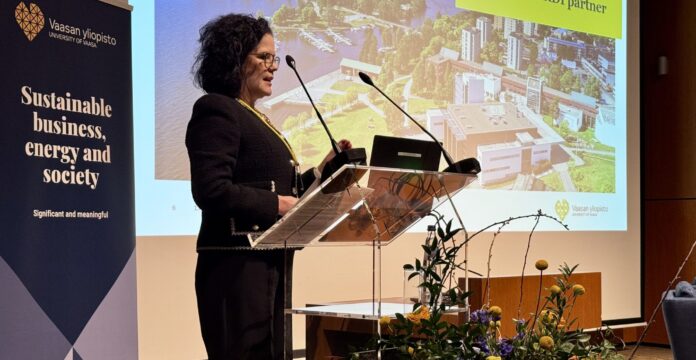The Foundation for Economic Education (LSR) and the University of Vaasa organised an event titled Tukea Suomen Tulevaisuudelle on May 14th with keynote speakers and presentations from researchers. Drawing on the messages of this event, it is clear that meaningful research can give hope and guidance, and provide knowledge and solutions to the problems we face as a nation locally and as a people globally.
So the good news is that research matters, but it leaves a question of what, then, is considered meaningful research and how do we go about ensuring the research we do makes an impact? Associate Professor Mikko Ranta presented research on how satellite data and AI can be used to measure the environmental effect of activities, providing practical solutions that not only improve sustainability but also benefit company efficiency. Presentation were also given by doctoral researchers Shahid Hafeez on innovation and digitalisation of SME’s, and Johanna Jansson on remote working practices, emphasising collaboration, understanding human behaviour, and well-being.
If there is a common thread in the presentations on such varied issues, it would be that they tackle real-world problems with identifiable root causes and, on the other end, offer a pathway to change. While research gaps are an important part of the scientific process, what really gets people to listen is knowing what the problem is, why it is a problem and who it is a problem for. Engaging with practitioners, policymakers, and communities anchors research in tangible issues and improves our chances of unearthing meaningful results.
At the same time, the chances of receiving funding is much improved by checking out the funder’s areas of interest and taking the time to research what kind of research they typically sponsor. LSR focus areas for 2024 revolve around business renewal, entrepreneurship, sustainable development, industry dynamics, and leadership competence, offering a wide array of topics well-suited for the strategic goals of the University of Vaasa.
Being able to measure impact and verify the expected results is equally important for ensuring both the funder and public in general that the research is worth spending money on. SMART goals are Specific, Measurable, Achievable, Relevant, and Time-Bound, and they can help structure funding applications resulting in a set of objectives that produce a scientific, social or economic impact. While it can be difficult to envision fully the scale of the whole project from start, an outline of data sources accompanied by clear timelines, required resources, and budget demands can already be used to generate key performance indicators to act as milestones for the process.
Finally, meaningful research does not occur in a silo. It is produced in collaboration with academic, societal, and business actors, and it must be shared as widely as possible to maximise its impact. A publishing plan is another staple of funding applications, yet it is often slapped on as an afterthought, especially as scientific impact is often delivered inbuilt with the scientific journal publishing process. However, taking time to think about the venues and means to publish research can help engage new actors, leading to long-term benefits in collaboration and further affix research goals in real-world relevance.





